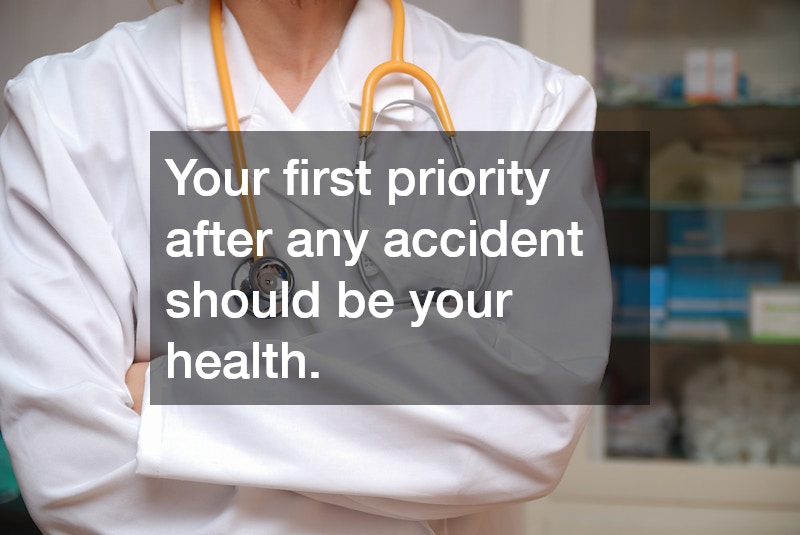Tips From a Motorcycle Accident Attorney Your First Steps to Compensation
Motorcycle accidents can be devastating, both physically and financially. In the aftermath of a crash, it’s easy to feel overwhelmed, unsure of what to do next, or how to protect your legal rights. That’s why guidance from a qualified motorcycle accident attorney is essential. Whether you’re dealing with medical bills, lost income, or insurance negotiations, taking the right steps early on can make a huge difference in your ability to secure fair compensation.
1. Prioritize Your Health and Safety
Your first priority after any accident should be your health. Even if your injuries seem minor, you should still seek medical attention as soon as possible.
Motorcycle crashes often result in hidden injuries—like internal bleeding, concussions, or soft tissue damage—that may not become obvious until hours or even days later.
Additionally, having medical documentation right after the accident creates a record that connects your injuries directly to the incident. This is critical evidence when filing an insurance claim or pursuing legal action.
2. Call the Police and File a Report
No matter how minor the accident may appear, always call law enforcement to the scene. A police report serves as an official record of what happened and can provide important details such as the location, parties involved, witness statements, and the officer’s preliminary assessment of fault.
This document becomes a cornerstone of your case and will be heavily relied upon by your motorcycle accident attorney during any settlement discussions or litigation.
3. Gather Evidence at the Scene
If you are physically able to do so safely, collect as much evidence as possible at the accident site. Use your smartphone to take photos or videos of:
-
The vehicles involved, including license plates and damage
-
The roadway, traffic signs, skid marks, or debris
-
Your injuries
-
The overall scene from multiple angles
Also, get the names and contact information of any witnesses. Their testimonies can be crucial in establishing how the accident happened and who is at fault.
4. Do Not Admit Fault
In the chaos after a crash, it’s natural to want to apologize or take some blame, even if you weren’t at fault. However, doing so can seriously damage your chances of recovering compensation.
Avoid discussing fault at the scene or with insurance adjusters. Stick to the facts and let the investigation determine responsibility. This is one reason why it’s critical to consult with an attorney before making any statements.
5. Notify Your Insurance Company
Most insurance policies require that you report any accidents promptly. However, keep your report factual and brief. Avoid giving recorded statements or accepting any fault.
Remember, insurance companies—yours included—are not on your side when it comes to large payouts. It’s wise to consult with a motorcycle accident attorney before engaging in detailed discussions or negotiations with insurers.
6. Consult a Motorcycle Accident Attorney Early
One of the most important steps you can take is to speak with a motorcycle accident attorney as soon as possible after your crash. The legal landscape around personal injury claims is complex, and motorcycle accidents can present unique challenges.
For instance, motorcyclists often face unfair bias that assumes they are risk-takers or at fault simply for being on a bike. An experienced attorney knows how to counter these stereotypes and build a strong case based on evidence, not assumptions.
Your attorney can help with:
-
Investigating the accident and preserving evidence
-
Calculating your full damages, including medical expenses, lost wages, pain and suffering, and future treatment needs
-
Communicating with insurance companies
-
Negotiating a fair settlement or representing you in court, if necessary
Most motorcycle accident attorneys work on a contingency fee basis, meaning you pay nothing upfront, and they only get paid if you win your case. That removes a major barrier to accessing legal help.
7. Track All Expenses and Losses
Start keeping a detailed record of everything related to your accident. This includes:
-
Medical bills and prescription costs
-
Mileage or transportation costs for medical appointments
-
Missed workdays and reduced earning capacity
-
Property damage and repair estimates
-
Mental health or counseling appointments
-
Journals documenting your pain, recovery, and emotional toll
The more documentation you provide, the easier it will be to prove the impact of the accident on your life.
Final Thoughts
Being involved in a motorcycle accident is traumatic, but you don’t have to go through it alone. Knowing your rights and taking the correct steps immediately after a crash can make all the difference when it comes to receiving the compensation you deserve.
Working with an experienced motorcycle accident attorney ensures that your case is handled professionally, your rights are protected, and you are not taken advantage of by insurance companies looking to settle for less than your case is worth. If you’ve been injured in a motorcycle crash, don’t wait. Take action now to safeguard your future—starting with the steps above.




